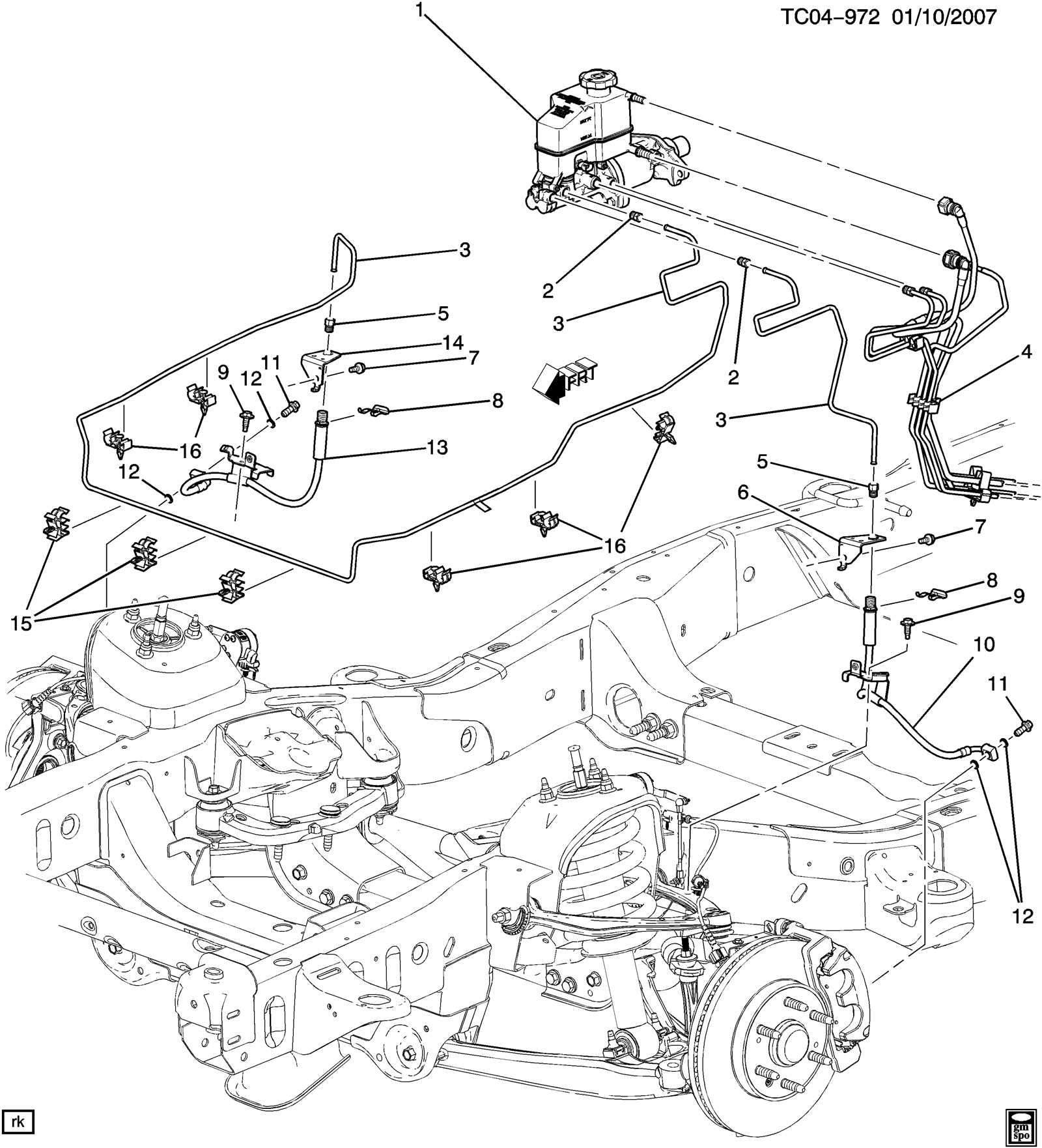
Exploring the intricate structure of automotive elements is essential for anyone seeking to enhance their knowledge of vehicle maintenance and repair. By grasping the arrangement of these components, enthusiasts and professionals alike can effectively troubleshoot issues and perform upgrades.
In this section, we will delve into the organization and functionality of various parts within a specific model, offering insights that can aid in both diagnostics and restoration projects. Knowing how each piece fits into the larger system is crucial for achieving optimal performance.
Whether you’re a seasoned mechanic or a curious car owner, understanding the layout of essential components can lead to more informed decisions when it comes to repairs and replacements. This guide serves as a valuable resource for those aiming to navigate the complexities of vehicle systems.
Understanding the GMC Sierra Parts Diagram
Comprehending the layout of a vehicle’s components is essential for effective maintenance and repairs. By familiarizing oneself with the intricate arrangement of elements, one can streamline the troubleshooting process and ensure proper functioning. This knowledge empowers owners and mechanics alike to tackle issues with confidence.
Visual representations of automotive assemblies serve as invaluable resources. They offer a detailed overview of various sections, highlighting connections and interactions between different components. This clarity aids in identifying parts that may require attention or replacement.
Furthermore, recognizing the specific roles of each element contributes to a deeper understanding of overall vehicle performance. This insight ultimately enhances the efficiency of repair procedures, leading to improved longevity and reliability.
Key Components of the 2007 GMC Sierra
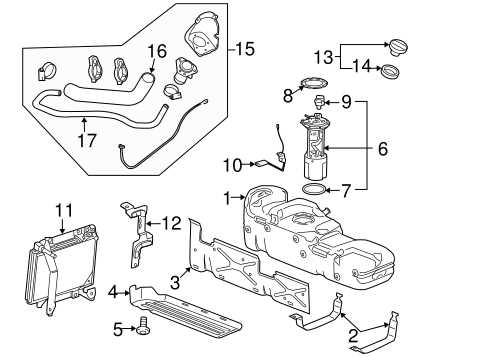
This section delves into the essential elements that contribute to the functionality and performance of this vehicle. Understanding these components is crucial for maintenance and repairs, ensuring longevity and reliability on the road.
Powertrain Elements
The powertrain is a vital aspect, encompassing the engine, transmission, and drivetrain. These parts work in harmony to provide the necessary power and efficiency, allowing for smooth acceleration and handling.
| Component | Description |
|---|---|
| Engine | Provides the necessary power for vehicle operation, available in various configurations. |
| Transmission | Facilitates the transfer of power from the engine to the wheels, ensuring optimal performance. |
| Drivetrain | Includes components like the driveshaft and axles that deliver power to the wheels. |
Suspension and Steering Systems
The suspension and steering systems play a crucial role in ride quality and handling. These components work together to provide stability, control, and comfort during various driving conditions.
| Component | Description |
|---|---|
| Shock Absorbers | Help maintain ride quality by absorbing bumps and irregularities in the road. |
| Steering Rack | Enables precise control of the vehicle’s direction, enhancing maneuverability. |
| Control Arms | Connect the vehicle’s body to the suspension system, allowing for proper wheel alignment. |
Common Issues with GMC Sierra Parts
Vehicles of a certain model often face a range of challenges over time, affecting their performance and reliability. These issues can stem from various components, which may wear out or malfunction due to age, usage, or environmental factors. Understanding these common problems can help owners maintain their vehicles more effectively.
Frequent Mechanical Failures
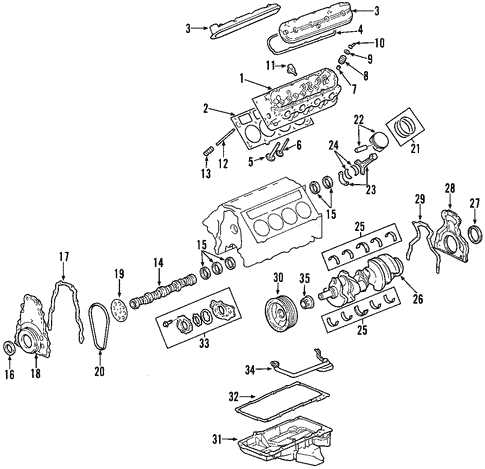
One of the most reported concerns involves mechanical components that may deteriorate, leading to decreased efficiency. Regular maintenance can mitigate some of these issues, but it’s essential to recognize which areas are prone to failure.
Electrical System Glitches
Another common issue relates to the electrical systems, which can exhibit erratic behavior due to faulty connections or worn-out wiring. Identifying these problems early can prevent more extensive damage and costly repairs.
| Issue Type | Symptoms | Recommended Action |
|---|---|---|
| Mechanical Wear | Unusual noises, decreased power | Regular inspections, timely replacements |
| Electrical Problems | Flashing lights, non-responsive components | Check wiring, test battery |
| Fluid Leaks | Puddles under the vehicle, low fluid levels | Inspect seals and hoses, repair leaks |
Benefits of Using OEM Parts
When it comes to vehicle maintenance and repair, choosing original manufacturer components offers several advantages that can enhance performance and longevity. These items are designed specifically for your vehicle, ensuring a perfect fit and optimal functionality.
Quality Assurance
OEM components are produced under strict quality control standards, guaranteeing durability and reliability. This assurance means that you can trust these components to perform as intended, reducing the likelihood of future issues.
Compatibility and Performance
Using original parts ensures compatibility with existing systems, which can lead to improved overall performance. This seamless integration minimizes the chances of complications that might arise from aftermarket alternatives, ultimately enhancing your driving experience.
Aftermarket vs. Original Parts Explained
When it comes to vehicle maintenance and repairs, the choice between aftermarket components and factory-produced items is crucial. Each option has its unique advantages and disadvantages, influencing both performance and cost. Understanding these differences can help vehicle owners make informed decisions that align with their specific needs and budgets.
Benefits of Aftermarket Components
Aftermarket items often present a more affordable alternative to factory options. These components are typically manufactured by third-party companies, which can lead to competitive pricing. Additionally, many aftermarket items offer enhancements or customizations that may not be available through original manufacturers, providing options for improved performance or aesthetics.
Advantages of Original Equipment
Original equipment components are designed to meet the exact specifications set by the vehicle’s manufacturer. This ensures a perfect fit and compatibility, which can enhance reliability and longevity. While generally more expensive, these items often come with a warranty that guarantees their performance and durability, offering peace of mind to the consumer.
| Factor | Aftermarket Components | Original Equipment |
|---|---|---|
| Cost | Typically lower | Generally higher |
| Quality | Varies widely | Consistently high |
| Customization | Often available | Limited options |
| Warranty | Varies | Usually includes a warranty |
How to Read a Parts Diagram
Understanding a visual representation of components is essential for effective maintenance and repair. These illustrations serve as a guide, helping you identify individual elements and their relationships within a system.
To interpret these visuals accurately, follow these steps:
- Familiarize Yourself with Symbols: Different icons represent various components. Take time to learn what each symbol means.
- Identify Sections: Diagrams are often divided into sections. Focus on one area at a time for clarity.
- Check Reference Numbers: Components are usually numbered. Cross-reference these with a list to find detailed information.
- Look for Annotations: Notes and labels provide additional context and can clarify the function of parts.
- Visualize Connections: Pay attention to how elements are linked. Understanding these relationships is crucial for assembly or disassembly.
By mastering these techniques, you can navigate complex visuals with confidence, ensuring a thorough understanding of the system you’re working on.
Essential Tools for Repairs
When undertaking vehicle maintenance, having the right instruments at your disposal is crucial. These tools not only facilitate efficient repairs but also enhance safety and accuracy during the process. A well-equipped toolbox can make the difference between a successful fix and a frustrating setback.
Basic Hand Tools
Start with a collection of fundamental hand tools that form the backbone of any repair job. These instruments are versatile and can address a variety of tasks, from tightening screws to loosening bolts.
| Tool | Function |
|---|---|
| Wrench Set | For turning nuts and bolts |
| Screwdriver Set | For driving screws |
| Pliers | For gripping and bending materials |
Specialized Equipment
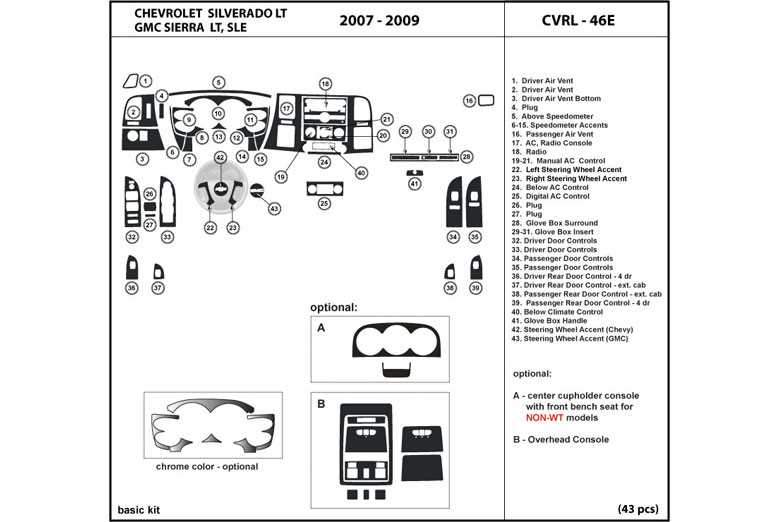
In addition to basic tools, certain specialized equipment is essential for more intricate repairs. These instruments are designed for specific tasks and can greatly simplify complex processes.
| Tool | Function |
|---|---|
| Torque Wrench | Ensures bolts are tightened to the correct specification |
| Diagnostic Scanner | Identifies vehicle issues through error codes |
| Jack and Stands | Elevates the vehicle for easier access |
Finding Replacement Parts Online
In today’s digital age, sourcing components for your vehicle has never been easier. A vast array of online platforms offers a convenient way to locate and purchase the necessary items, ensuring your automobile remains in optimal condition. By utilizing various resources, you can efficiently navigate the marketplace to find exactly what you need.
Start by identifying reliable websites that specialize in automotive components. Look for established retailers that provide detailed descriptions, specifications, and customer reviews. This information is crucial in making informed decisions and ensuring quality.
Another key aspect is utilizing search filters effectively. Most online stores allow you to narrow down your options by make, model, and year. This targeted approach saves time and helps avoid the frustration of sifting through irrelevant listings.
Additionally, consider joining online communities or forums. Enthusiasts and experts often share valuable insights, recommendations, and even links to reputable sellers. Engaging with others who share your passion can enhance your knowledge and help you make better choices.
Finally, always compare prices across multiple platforms before making a purchase. Variations in cost can be significant, and finding the best deal can save you money. Don’t forget to check for any available warranties or return policies to protect your investment.
Maintenance Tips for GMC Sierra
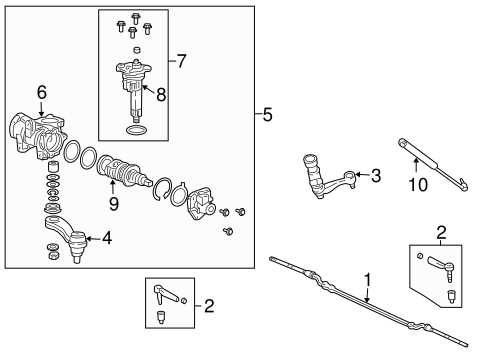
Proper upkeep of your vehicle is essential to ensure its longevity and optimal performance. Regular maintenance not only enhances reliability but also helps to prevent costly repairs down the line. Here are some effective strategies to keep your truck in excellent condition.
Regular Oil Changes: Changing the oil at recommended intervals is crucial for engine health. Fresh oil lubricates moving parts and reduces friction, contributing to a smoother operation.
Tire Care: Keep your tires properly inflated and regularly check for uneven wear. Rotating tires every few thousand miles can extend their lifespan and improve handling.
Brake Inspection: Periodically inspect the braking system for wear and tear. Replace brake pads and fluid as needed to ensure safety and responsiveness.
Fluid Levels: Regularly check and top off all essential fluids, including coolant, transmission fluid, and power steering fluid. Maintaining optimal levels helps prevent overheating and mechanical failure.
Battery Maintenance: Inspect the battery for corrosion and ensure it is securely mounted. Clean connections and replace the battery if it shows signs of weakness, especially before winter.
Air Filter Replacement: A clean air filter improves engine efficiency and performance. Replace it regularly to ensure the engine receives an adequate air supply.
Routine Inspections: Conduct regular inspections of belts and hoses for signs of wear. Replacing them before they fail can save you from unexpected breakdowns.
By following these essential maintenance tips, you can enjoy a reliable and efficient vehicle that stands the test of time.
How to Identify Part Numbers
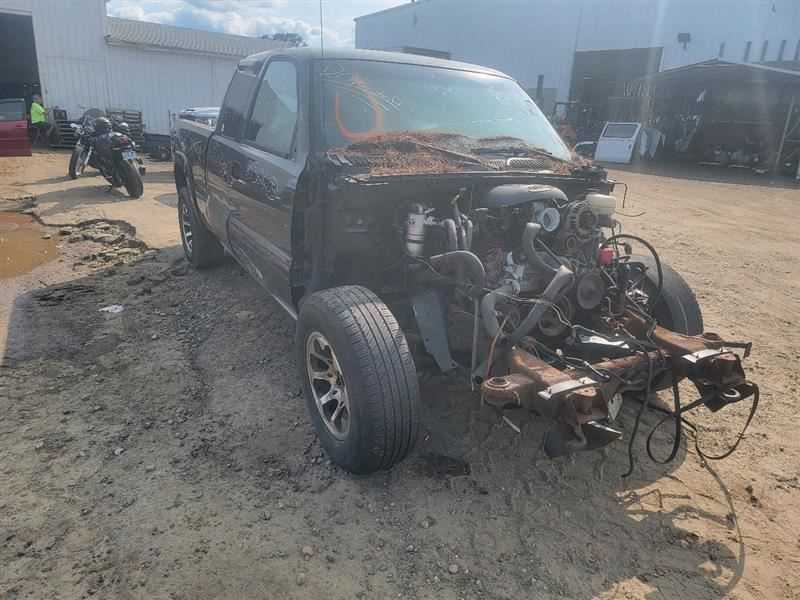
Recognizing component identifiers is essential for effective maintenance and repair. Each identifier provides vital information about compatibility and specifications, ensuring that replacements fit correctly and function optimally.
Understanding the Format
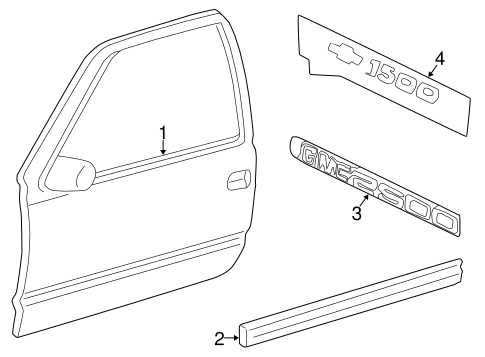
Part identifiers typically follow a structured format, often including letters and numbers that indicate the manufacturer, type of component, and specific attributes. Familiarizing yourself with common formats can streamline your search for the right item.
Utilizing Resources
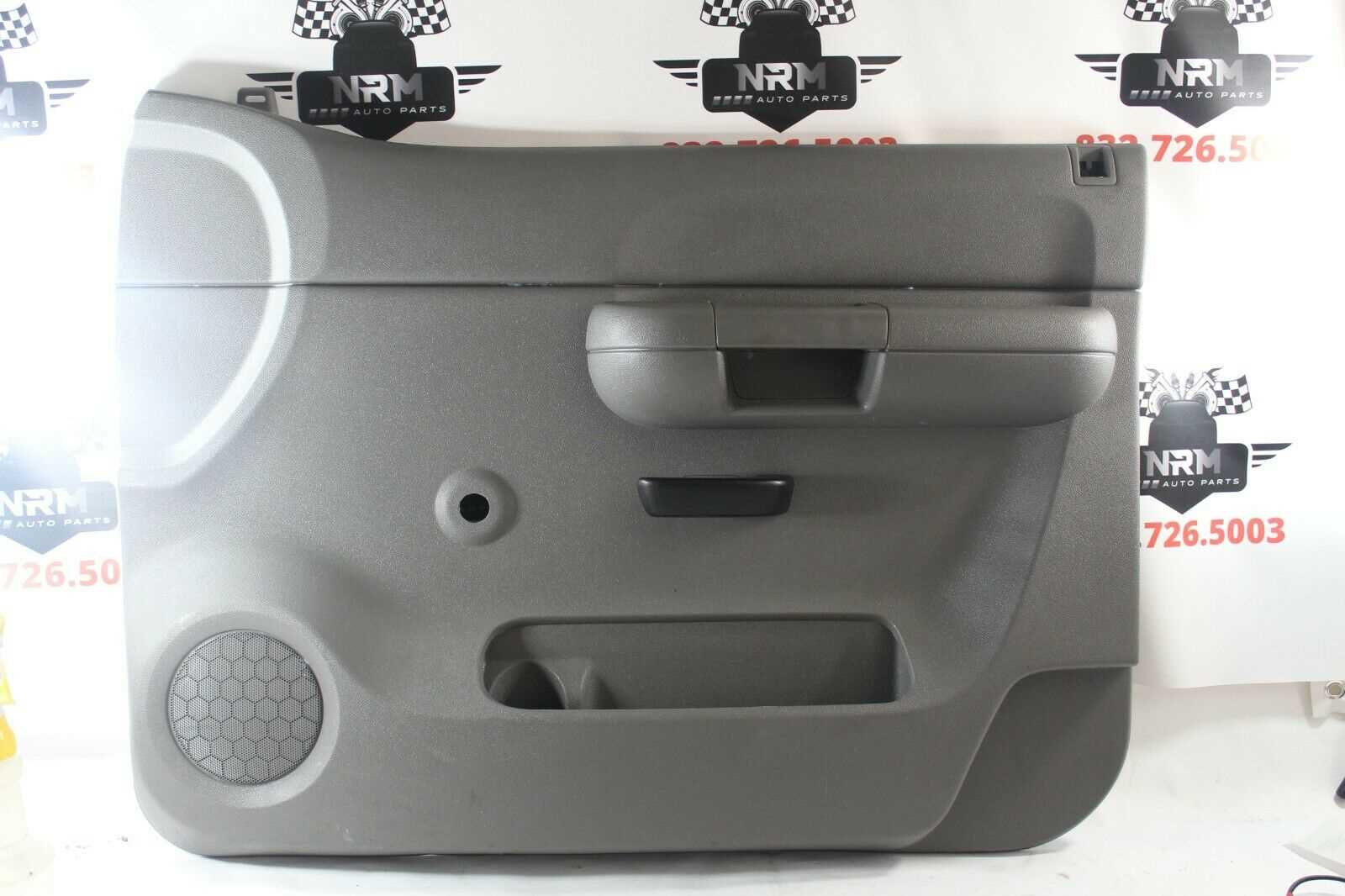
Consulting official manuals or trusted online databases can greatly assist in locating the correct identifiers. Additionally, forums and communities dedicated to automotive discussions can provide valuable insights and recommendations for finding the ultimate match for your needs.
Upgrading Your GMC Sierra Components
Enhancing vehicle elements can significantly boost performance, aesthetics, and overall driving experience. Whether you’re seeking better functionality or simply want a fresh look, there are numerous options to consider.
- Performance Upgrades:
- Improved exhaust systems for better airflow.
- High-performance air filters for increased engine efficiency.
- Suspension kits for improved handling.
- Aesthetic Enhancements:
- Custom wheels and tires for a unique appearance.
- Updated lighting options for a modern touch.
- Exterior wraps for personalized styling.
- Interior Modifications:
- Upgraded audio systems for enhanced entertainment.
- New upholstery for a fresh interior feel.
- Advanced navigation systems for improved functionality.
With the right choices, you can delve into a transformative journey that elevates your vehicle’s capabilities and style to the ultimate level.
DIY Repair Guide for GMC Sierra
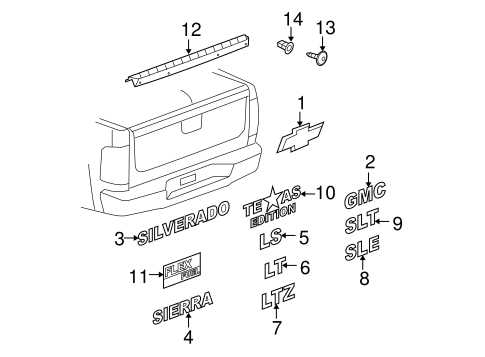
This guide aims to empower vehicle owners with the knowledge and tools necessary for performing basic maintenance and repairs on their trucks. Understanding your vehicle’s components and systems will not only save you money but also enhance your driving experience by ensuring everything runs smoothly.
Before you begin any repair work, it’s essential to gather the right tools and familiarize yourself with the specific areas of your truck that may need attention. Here are some general tips to get started:
- Always consult your owner’s manual for specifications and recommendations.
- Invest in a quality set of tools, including wrenches, screwdrivers, and pliers.
- Wear safety gear such as gloves and goggles to protect yourself during repairs.
- Consider having a friend assist you, especially for larger tasks.
Common areas that may require maintenance include:
- Engine system
- Transmission fluid
- Brakes and rotors
- Battery and electrical systems
- Suspension components
When tackling repairs, follow these steps for a systematic approach:
- Identify the issue and research possible solutions.
- Gather necessary parts and tools before starting the repair.
- Document each step you take, which can help you remember the process for future reference.
- Test your repairs thoroughly before returning your vehicle to regular use.
By following this guide, you can successfully address common issues, enhance your vehicle’s performance, and gain confidence in your mechanical skills.
Resources for GMC Sierra Owners
For enthusiasts and owners of this popular vehicle, having access to reliable resources is crucial for maintenance and enhancement. Whether you’re looking to troubleshoot issues or upgrade components, a wealth of information is available to support your journey.
Online Forums: Engaging with fellow owners through dedicated online communities can provide invaluable insights. These platforms often feature discussions on common problems, DIY solutions, and personal experiences that can guide your decisions.
Service Manuals: Official repair manuals are a treasure trove of detailed information, offering step-by-step instructions for repairs and maintenance. These documents are essential for anyone looking to understand their vehicle on a deeper level.
Video Tutorials: Numerous channels on video-sharing platforms specialize in automotive repairs. Visual demonstrations can simplify complex procedures, making it easier for even novice owners to tackle projects with confidence.
Parts Retailers: Reliable suppliers provide a vast array of components and accessories. Many of these retailers also offer resources such as fitment guides and customer reviews to help you make informed choices.
Local Meetups: Participating in local gatherings can enhance your ownership experience. These events foster camaraderie among owners, allowing for the exchange of tips, tricks, and personal stories that can enrich your understanding of the vehicle.
Utilizing these resources effectively can empower owners to maintain and enhance their vehicles, ensuring they perform optimally for years to come.